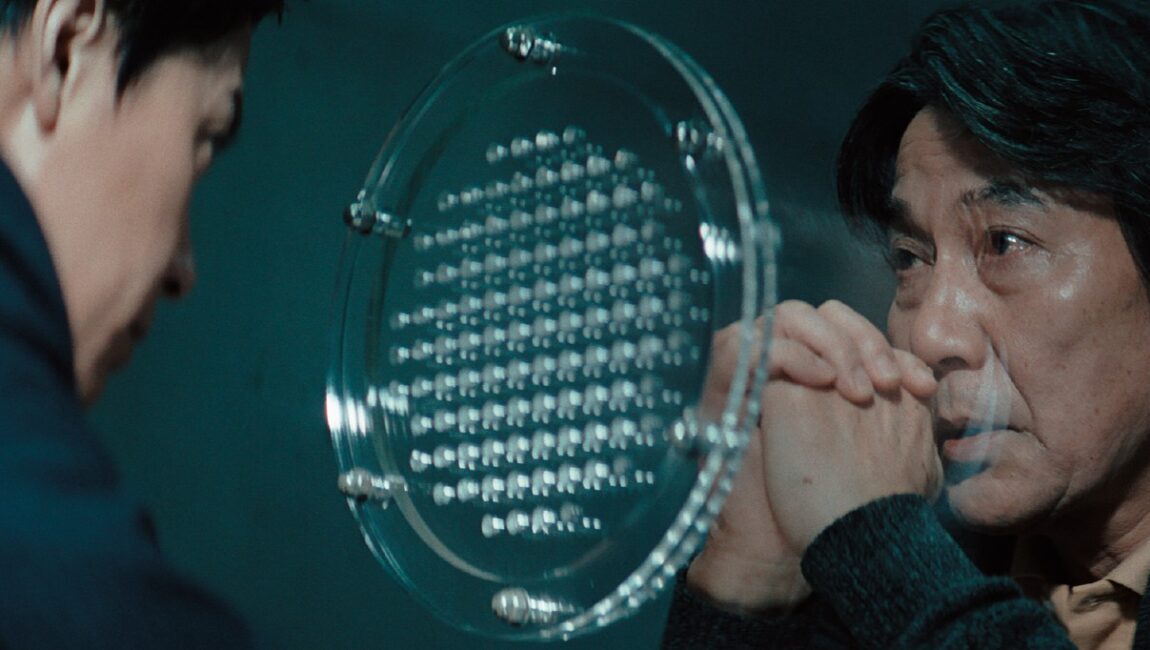Chappie opens with documentary-style footage of artificial intelligence experts discussing the apparently paradigm-shifting events of the film about to begin, before shifting to faux news clips describing the privatization of Johannesburg’s police force and its extensive use of autonomous humanoid law enforcement drones called scouts. Later, a scientist installs an experimental A.I. program (a file hilariously labelled “consciousness.dat”) onto one of those droids, resulting in an incredibly powerful and dangerous “being” with the mind of a toddler. Duped by a gang of criminals headed by South African rappers Die Antwoord (evidently playing themselves) who intend to use Chappie to help them commit crimes, he must first be “educated” by them in how to act like a criminal. Eventually he comes to understand the implications of his own sentience and must protect himself from the defense contractor that now wants to destroy him.
There’s a lot of grist here. Artificial intelligence; privatization, militarization, and automation of law-enforcement; the limits of consciousness and nature-vs.-nurture in child development; and the function of crazy South African prankster musicians. But those are largely just cast aside in favor of Neill Blomkamp’s exquisite eye for design and formidable tech-fetish. Chappie doesn’t really have anything to say about any of these subjects; it’s just background noise, practically expository. The film is essentially told in flashback from those opening segments, as if the entire world now knows of and has been affected by the events of the plot, but that’s never returned to, and ultimately the greater implications are chalked up to an amusingly absurd but still empty joke in its final shot.
Blomkamp may never be able to create a coherent ideology to sustain his incredible visual imagination.
Blomkamp’s beloved but sloppy District 9 was scuttled by some icky intrinsic colonialist subtext and a heavy-handed but muddy Apartheid analogy. His second feature, Elysium, failed again to go much further than trite social commentary dressed up with gorgeous visuals. Chappie isn’t much different. Blomkamp may never be able to create a coherent ideology to sustain his incredible visual imagination, but his films share one common value: his obsession with how bodies are disrupted by technology — what metal does to meat. People in his movies are forever being transformed by machines, turned into alien organisms or fused with body-armor or exoskeletons, but most frequently torn apart by weapons gorgeously imagined by a director who’s also a noted gun collector. His work is rarely more compelling or beautiful than when it gazes lovingly at flesh being shredded by bullets like it was pulled pork. And by the time Chappie concludes, the body is eventually rendered useless, too vulnerable, an organic liability.








No Comments